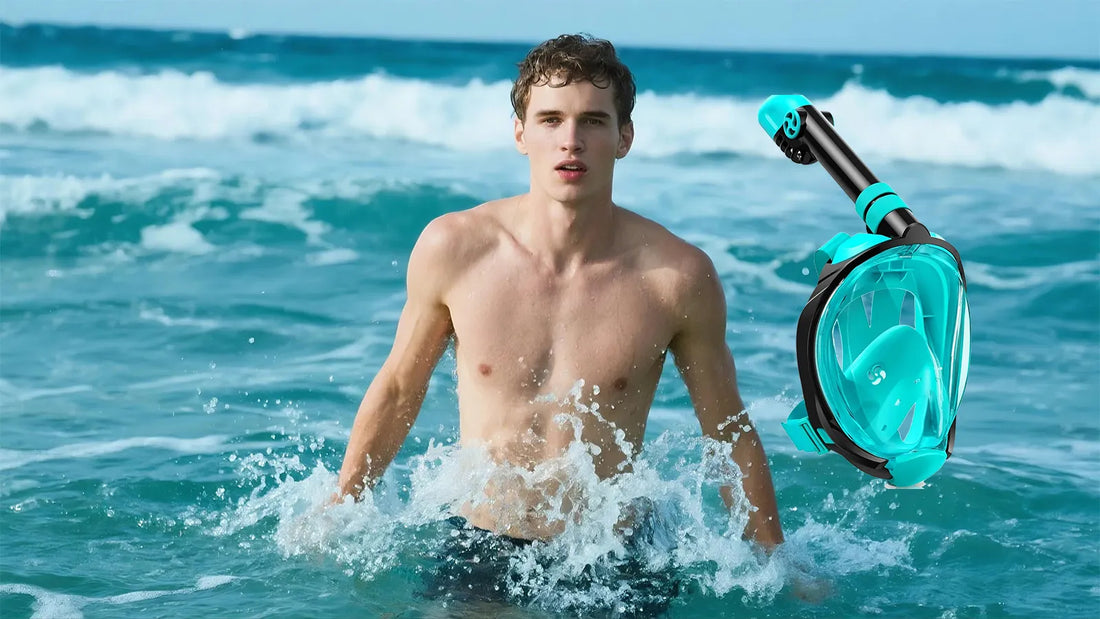Have you ever dreamed of exploring the vibrant underwater world but hesitated because you don't know how to swim? The good news is that snorkeling can still be an option for you. While swimming skills are beneficial, they are not always a strict requirement for snorkeling. This article will delve into the possibilities, safety measures, and tips for non-swimmers who want to experience the beauty beneath the waves.
Understanding Snorkeling Basics
Snorkeling is a popular water activity that allows individuals to observe underwater life in a relatively simple and accessible way. It involves using a snorkel, a mask, and often fins to swim on the water's surface while breathing through the snorkel tube. Unlike scuba diving, snorkeling does not require extensive training or heavy equipment, making it an attractive option for beginners.
Can Non-Swimmers Snorkel?
The short answer is yes, non-swimmers can snorkel, but with certain precautions. Snorkeling primarily involves floating on the water's surface, which can be achieved with the help of flotation devices such as life jackets or snorkeling vests. These tools provide buoyancy, allowing non-swimmers to stay afloat without exerting much effort. However, it's essential to understand that snorkeling in open water can still pose risks, so proper preparation and safety measures are crucial.
Essential Safety Tips for Non-Swimmers
If you're a non-swimmer planning to snorkel, here are some safety tips to keep in mind:
- Use a Flotation Device: Always wear a life jacket or snorkeling vest to ensure you stay buoyant and safe.
- Choose Calm Waters: Opt for snorkeling spots with calm, shallow waters and minimal currents to reduce risks.
- Stay Close to Shore: Avoid venturing too far from the shore or your boat, especially if you're not confident in the water.
- Snorkel with a Buddy: Never snorkel alone. Having a companion who can assist you in case of an emergency is vital.
- Practice Breathing: Before heading into the water, practice breathing through the snorkel tube on land to get comfortable with the sensation.
Benefits of Snorkeling for Non-Swimmers
Snorkeling offers a unique opportunity to connect with nature and explore marine life without the need for advanced swimming skills. It can be a relaxing and enjoyable activity that boosts your confidence in the water. Additionally, snorkeling can serve as a stepping stone for non-swimmers who may later decide to learn how to swim or try other water-based activities.
Common Challenges and How to Overcome Them
Non-swimmers may face specific challenges while snorkeling, such as fear of water, difficulty breathing through the snorkel, or feeling unbalanced in the water. To overcome these challenges:
- Start in a Pool: Practice snorkeling in a controlled environment like a swimming pool to build confidence.
- Take a Guided Tour: Join a guided snorkeling tour where professionals can provide support and guidance.
- Use a Full-Face Snorkel Mask: These masks cover the entire face, making breathing more natural and comfortable for beginners.
Choosing the Right Snorkeling Gear
Selecting the appropriate gear is essential for a safe and enjoyable snorkeling experience. Here are some key considerations:
- Mask: Choose a mask that fits snugly and provides a clear view. Anti-fog features can enhance visibility.
- Snorkel: Look for a snorkel with a comfortable mouthpiece and a splash guard to prevent water from entering.
- Fins: While not mandatory, fins can help you move more efficiently in the water. Opt for adjustable fins for a better fit.
- Flotation Device: Ensure your life jacket or snorkeling vest is the right size and provides adequate buoyancy.
Snorkeling Etiquette and Environmental Awareness
When snorkeling, it's important to respect marine life and the environment. Avoid touching or stepping on coral reefs, as they are fragile and can be easily damaged. Refrain from feeding fish or disturbing wildlife, and always dispose of trash properly. By practicing good snorkeling etiquette, you can help preserve the underwater ecosystem for future generations.
Building Confidence in the Water
For non-swimmers, building confidence in the water is a gradual process. Start by spending time in shallow water and gradually increase your comfort level. Consider taking swimming lessons to improve your skills and enhance your overall snorkeling experience. Remember, the more comfortable you are in the water, the more enjoyable snorkeling will be.
Exploring Snorkeling Destinations for Beginners
There are numerous snorkeling destinations around the world that cater to beginners and non-swimmers. Look for locations with calm, clear waters and abundant marine life. Some popular options include protected bays, lagoons, and coral reefs. Researching and choosing the right destination can make your snorkeling adventure more enjoyable and less intimidating.
Final Thoughts on Snorkeling Without Swimming Skills
Snorkeling without knowing how to swim is entirely possible with the right preparation and precautions. By using flotation devices, choosing safe locations, and practicing proper techniques, non-swimmers can safely enjoy the wonders of the underwater world. Whether you're a seasoned traveler or a first-time snorkeler, the key is to prioritize safety and take things at your own pace. So, why wait? Dive into the adventure and discover the beauty that lies beneath the surface!

